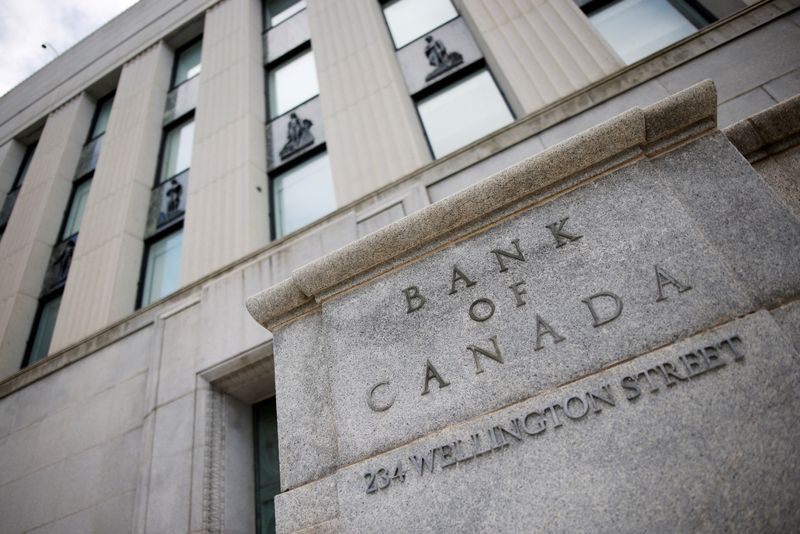By Promit Mukherjee
OTTAWA (Reuters) - The Bank of Canada's annual economic growth forecast is overly optimistic, economists said, and another large interest rate cut this year will likely be required to boost growth.
Economists widely expected the BoC to lower its annual gross domestic product (GDP) forecast when it released its quarterly monetary policy report on Wednesday, after a spate of uninspiring growth data.
However, the bank only revised the third-quarter growth projection and kept its 2024 estimate unchanged, which surprised many economists and analysts.
"The bank had a more positive view on the economy for this year," said Tony Stillo, the director of Canadian economics at Oxford Economics.
Annual GDP is likely to come below the bank's estimate and the bank would have to cut rates by another 50 basis points in December to support the economy, he said.
In its monetary policy report the bank revised down its estimate of annualized third-quarter GDP to 1.5% from 2.8% in July. Its full-year estimate, however, remained unchanged at 1.2%, along with no change to its 2025 projection.
"If growth comes in a shade below the Bank of Canada's forecast, it could be one factor that supports a 50 basis-point cut in December," said Avery Shenfeld, Managing Director and Chief Economist for Capital Markets at CIBC.
A bigger-than-usual cut would also bring the key policy rate to the upper end of what the BoC estimates is its neutral rate of interest, which economists say is a prudent level where the bank can start slowing rate cuts.
A neutral point is when the policy rate is neither restricting nor stimulating economic growth.
"We continue to expect one more 50-bps rate cut from the BoC this December," Claire Fan, economist at RBC wrote in a report, adding that real GDP growth was more likely to stay subdued for longer as interest rates remain restrictive until 2025.
The bank reduced its key benchmark rate by 50 basis points to 3.75% on Wednesday, and Governor Tiff Macklem said he would like to see growth strengthen as inflation was largely tamed.

He said the pace and timing of further reductions would depend on incoming data between now and Dec. 11, when it announces its next rate decision.
The bank will have two sets of GDP data - for August and September, inflation numbers for October, and two jobs reports before it makes its next decision.